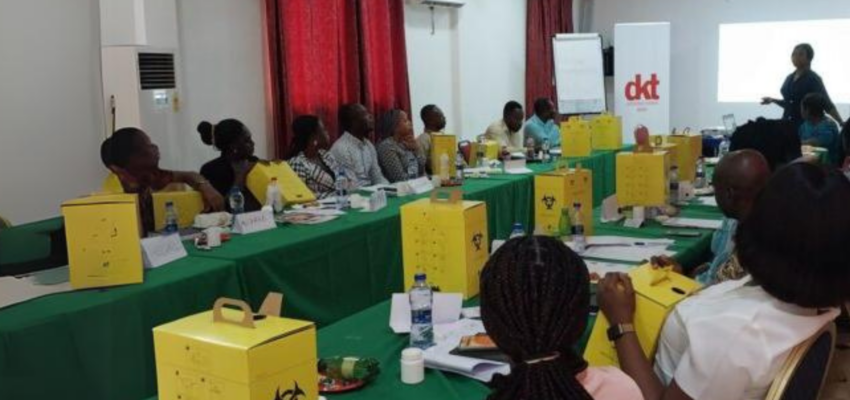
Barriers To Accessing Self-Injecting DMPA-SC In Ghana
By DKT AWA, DKT GHANA
Since the introduction of DMPA-SC in 2019, Ghanaian women have had an additional contraceptive choice. However, regulatory barriers that currently prohibit self-injection (SI) have limited its accessibility. A recent insights survey (DKT, 2021) revealed that 49% of contraceptive users obtain their contraceptives from pharmacies and chemical shops, indicating the potential of this channel to address the unmet need for family planning, which currently stands at 30%.
To generate evidence on self-injectors in the pharmacy channel, DKT Anglophone West Africa (AWA) decided to conduct a swift policy review to unlock the pharmacy channel as an access point for DMPA-SC. To achieve this objective, DKT Ghana employed a mixed-method approach, combining both qualitative and quantitative techniques, to provide a comprehensive understanding of the issue. Sampling methods for the quantitative aspect included a multistage random sampling to select participating pharmacies and clients for exit interviews.
Qualitatively, purposive sampling was employed for in-depth interviews with participating pharmacists and key stakeholders, while a convenience sampling was used to select participants for the focus group discussion.
The following key insights were revealed from the study and survey:
- Policy Barriers: Strict regulations limit pharmacies from providing DMPA-SC services directly, leading to reduced access points for women who prefer pharmacy channels. The government and health policies currently restrict the administration of self-injecting contraceptives, confining them primarily to health facilities. This poses a challenge for women in rural areas where accessing clinics is harder.
- Training Barriers: Pharmacists face challenges in receiving adequate training on the administration and counseling of DMPA-SC. The report emphasizes the need for more extensive training programs to improve their capacity in delivering these services. Training gaps directly affect pharmacists’ confidence in promoting and supporting self-injecting contraceptives.
- Enablers to Implementation: The report notes the effectiveness of pharmacists in community outreach, education, and creating awareness about DMPA-SC. Collaborative partnerships between pharmacies, the Ghana Health Service, and NGOs have proven successful in expanding access to DMPA-SC, though further policy adjustments and continuous training are needed for sustainable impact.
- Client Satisfaction and Counseling: Data collected through client exit interviews highlight a high level of satisfaction with the counseling provided at pharmacies. However, some clients noted that information on side effects was not adequately addressed, pointing to the need for enhanced counseling methods.
Recommendations:
- Policy Reforms: Adjustments to Ghana’s health policies are crucial for expanding access to self-injectable contraceptives via pharmacies. Legislative reforms would allow pharmacists to play a larger role in contraceptive distribution and administration, including self-injection.
- Strengthened Training Programs: There is a strong call for continuous learning and support for pharmacists, focusing on DMPA-SC counseling, administration, and self-injection techniques to empower them further in supporting clients.
- Community Engagement: Pharmacies are already seen as trusted access points for healthcare, and targeted community engagement can increase awareness and trust in pharmacy-led contraceptive services.
You can view and download the full report below. For more information about DKT AWA and their work, please contact AWA Regional Director Alex Brown at alex@dktinternational.org.
